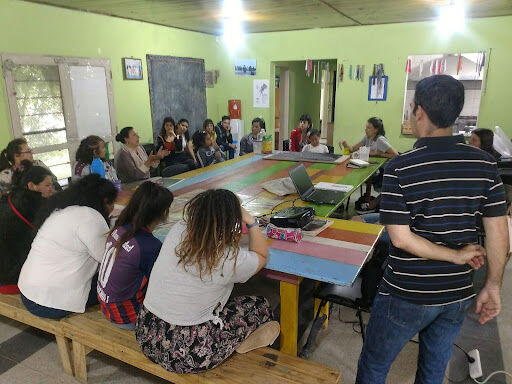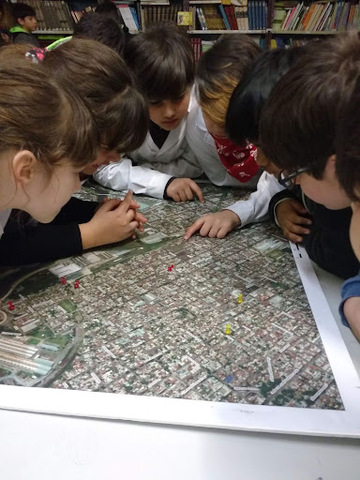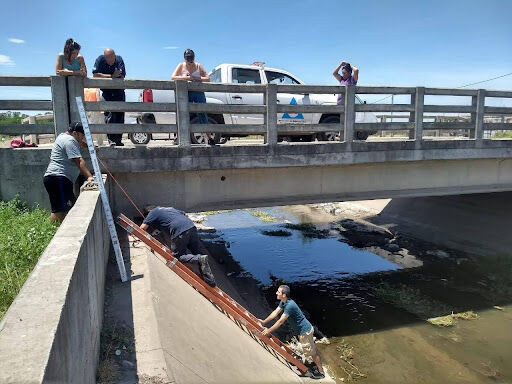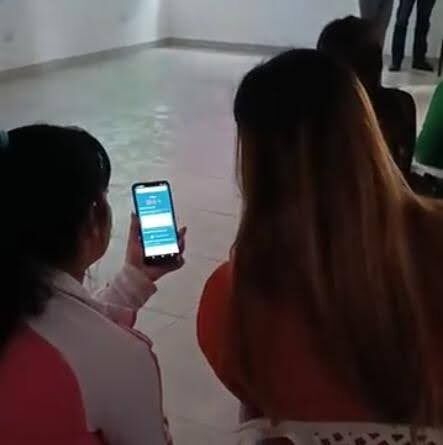Dr Diego Moreira, Lic Camila Prudente, Dr Federico Robledo, Lic Nadia Testani
Urban flooding is a major challenge for local governments worldwide due to its direct and severe impact on communities. As climate change intensifies, these risks are escalating, making the assessment and monitoring of urban watersheds a priority. This is why the Early Warnings for All initiative approved by the United Nations in 2022 seeks to ensure that everyone on Earth is protected from dangerous climate, water or weather events through life-saving early warning systems.
The Anticipando la Crecida(ALC) project - "Anticipating the Flood" - is a ten-year initiative aimed at improving flood preparedness through the co-creation of a local early warning system in differents regions, as in the Matanza River Basin (MRB), a rural-urban sub-basin of the Plata Basin in Buenos Aires, Argentina. This region, home to over five million people, faces increased vulnerability due to its socio-economic conditions and limited infrastructure, making flood risk management critical.
The project combines scientific knowledge from different disciplines (meteorology, oceanography, geography, anthropology and engineering) with the knowledge of the local community (local neighbors, civil defense, teachers and students of schools that act as evacuation centers, community organizations and the science and technology department of the local government in the MRB) in a continuous dialogue. In addition, the project actively involves young people as key actors in the development of locally relevant climate adaptation strategies.

ALC aims to deepen the understanding of the river system among the most vulnerable populations in the MRB, improve adaptation strategies and reduce the impact of floods. Through a co-production of knowledge approach, communities take ownership of the tools and knowledge generated, enabling them to better monitor and anticipate floods, promote effective local decision-making and thus reduce flood risks.
Key Activities:
Participatory mapping and fieldwork: Workshops and field trips, conducted during both drought and flood conditions, allow for block-level risk assessments, Identify exposed and most vulnerable areas. This co-produced information is integrated into a geoportal developed by the National Geographic Institute of Argentina, making geospatial data available and accessible to the public.

Community monitoring network: Since 2014, the project has established a community-led network of rain gauges and river level stations across the MRB. Local teachers, students and civil defense personnel collect and share the data, contributing to real-time flood monitoring. As the MRB is flat, the rainfall and river level information collected upstream provides valuable information to anticipate flooding downstream.

Communication of official weather alerts and socialization of community data: Through collaborative workshops, community members helped design the most effective ways to communicate short-term weather alerts from the National Weather Service of Argentina (https://www.smn.gob.ar/) and rainfall and river level data collected by the ALC monitoring network during rain events.

ALC provides valuable insights into disaster risk management in urban and rural areas. By bridging academic knowledge and community-based practice, it promotes more informed and resilient responses to flooding. This collaborative approach highlights the importance of ongoing dialogue between scientists, local stakeholders and policy makers to mitigate the impacts of climate-related disasters.
This project is an example of the application of the bottom-up approach proposed by the Lighthouse Activity of the World climate Research Programme, My Climate Risk (MCR). As scientists working with this approach and being part of MCR Regional Hub CONICET-Argentina, we can say that ALC changed the way we develop new scientific questions and knowledge.
If you want to know more about ALC, please visit its webpage and instagram account.

